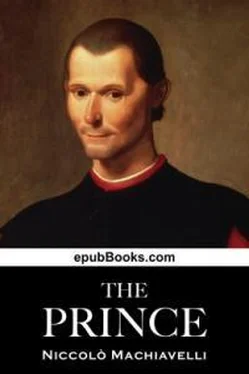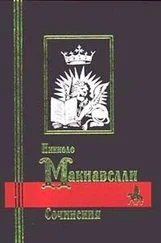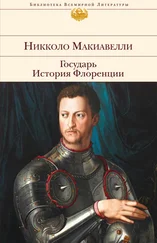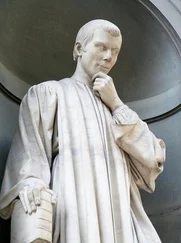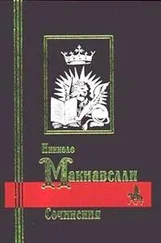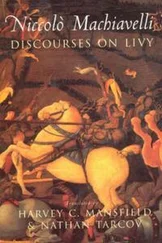The Prince
Niccolò Machiavelli
To the Magnificent Lorenzo Di Piero De' Medici:
Those who strive to obtain the good graces of a prince are accustomed to come before him with such things as they hold most precious, or in which they see him take most delight; whence one often sees horses, arms, cloth of gold, precious stones, and similar ornaments presented to princes, worthy of their greatness.
Desiring therefore to present myself to your Magnificence with some testimony of my devotion towards you, I have not found among my possessions anything which I hold more dear than, or value so much as, the knowledge of the actions of great men, acquired by long experience in contemporary affairs, and a continual study of antiquity; which, having reflected upon it with great and prolonged diligence, I now send, digested into a little volume, to your Magnificence.
And although I may consider this work unworthy of your countenance, nevertheless I trust much to your benignity that it may be acceptable, seeing that it is not possible for me to make a better gift than to offer you the opportunity of understanding in the shortest time all that I have learnt in so many years, and with so many troubles and dangers; which work I have not embellished with swelling or magnificent words, nor stuffed with rounded periods, nor with any extrinsic allurements or adornments whatever, with which so many are accustomed to embellish their works; for I have wished either that no honour should be given it, or else that the truth of the matter and the weightiness of the theme shall make it acceptable.
Nor do I hold with those who regard it as a presumption if a man of low and humble condition dare to discuss and settle the concerns of princes; because, just as those who draw landscapes place themselves below in the plain to contemplate the nature of the mountains and of lofty places, and in order to contemplate the plains place themselves upon high mountains, even so to understand the nature of the people it needs to be a prince, and to understand that of princes it needs to be of the people.
Take then, your Magnificence, this little gift in the spirit in which I send it; wherein, if it be diligently read and considered by you, you will learn my extreme desire that you should attain that greatness which fortune and your other attributes promise. And if your Magnificence from the summit of your greatness will sometimes turn your eyes to these lower regions, you will see how unmeritedly I suffer a great and continued malignity of fortune.
Nicolo Machiavelli was born at Florence on 3rd May 1469. He was the second son of Bernardo di Nicolo Machiavelli, a lawyer of some repute, and of Bartolommea di Stefano Nelli, his wife. Both parents were members of the old Florentine nobility.
His life falls naturally into three periods, each of which singularly enough constitutes a distinct and important era in the history of Florence. His youth was concurrent with the greatness of Florence as an Italian power under the guidance of Lorenzo de' Medici, Il Magnifico. The downfall of the Medici in Florence occurred in 1494, in which year Machiavelli entered the public service. During his official career Florence was free under the government of a Republic, which lasted until 1512, when the Medici returned to power, and Machiavelli lost his office. The Medici again ruled Florence from 1512 until 1527, when they were once more driven out. This was the period of Machiavelli's literary activity and increasing influence; but he died, within a few weeks of the expulsion of the Medici, on 22nd June 1527, in his fifty–eighth year, without having regained office.
Although there is little recorded of the youth of Machiavelli, the Florence of those days is so well known that the early environment of this representative citizen may be easily imagined. Florence has been described as a city with two opposite currents of life, one directed by the fervent and austere Savonarola, the other by the splendour–loving Lorenzo. Savonarola's influence upon the young Machiavelli must have been slight, for although at one time he wielded immense power over the fortunes of Florence, he only furnished Machiavelli with a subject of a gibe in "The Prince," where he is cited as an example of an unarmed prophet who came to a bad end. Whereas the magnificence of the Medicean rule during the life of Lorenzo appeared to have impressed Machiavelli strongly, for he frequently recurs to it in his writings, and it is to Lorenzo's grandson that he dedicates "The Prince."
Machiavelli, in his "History of Florence," gives us a picture of the young men among whom his youth was passed. He writes: "They were freer than their forefathers in dress and living, and spent more in other kinds of excesses, consuming their time and money in idleness, gaming, and women; their chief aim was to appear well dressed and to speak with wit and acuteness, whilst he who could wound others the most cleverly was thought the wisest." In a letter to his son Guido, Machiavelli shows why youth should avail itself of its opportunities for study, and leads us to infer that his own youth had been so occupied. He writes: "I have received your letter, which has given me the greatest pleasure, especially because you tell me you are quite restored in health, than which I could have no better news; for if God grant life to you, and to me, I hope to make a good man of you if you are willing to do your share." Then, writing of a new patron, he continues: "This will turn out well for you, but it is necessary for you to study; since, then, you have no longer the excuse of illness, take pains to study letters and music, for you see what honour is done to me for the little skill I have. Therefore, my son, if you wish to please me, and to bring success and honour to yourself, do right and study, because others will help you if you help yourself."
Office
Aet. 25-43―1494-1512
The second period of Machiavelli's life was spent in the service of the free Republic of Florence, which flourished, as stated above, from the expulsion of the Medici in 1494 until their return in 1512. After serving four years in one of the public offices he was appointed Chancellor and Secretary to the Second Chancery, the Ten of Liberty and Peace. Here we are on firm ground when dealing with the events of Machiavelli's life, for during this time he took a leading part in the affairs of the Republic, and we have its decrees, records, and dispatches to guide us, as well as his own writings. A mere recapitulation of a few of his transactions with the statesmen and soldiers of his time gives a fair indication of his activities, and supplies the sources from which he drew the experiences and characters which illustrate "The Prince."
His first mission was in 1499 to Catherina Sforza, "my lady of Forli" of "The Prince," from whose conduct and fate he drew the moral that it is far better to earn the confidence of the people than to rely on fortresses. This is a very noticeable principle in Machiavelli, and is urged by him in many ways as a matter of vital importance to princes.
In 1500 he was sent to France to obtain terms from Louis XII for continuing the war against Pisa: this king it was who, in his conduct of affairs in Italy, committed the five capital errors in statecraft summarized in "The Prince," and was consequently driven out. He, also, it was who made the dissolution of his marriage a condition of support to Pope Alexander VI; which leads Machiavelli to refer those who urge that such promises should be kept to what he has written concerning the faith of princes.
Читать дальше
